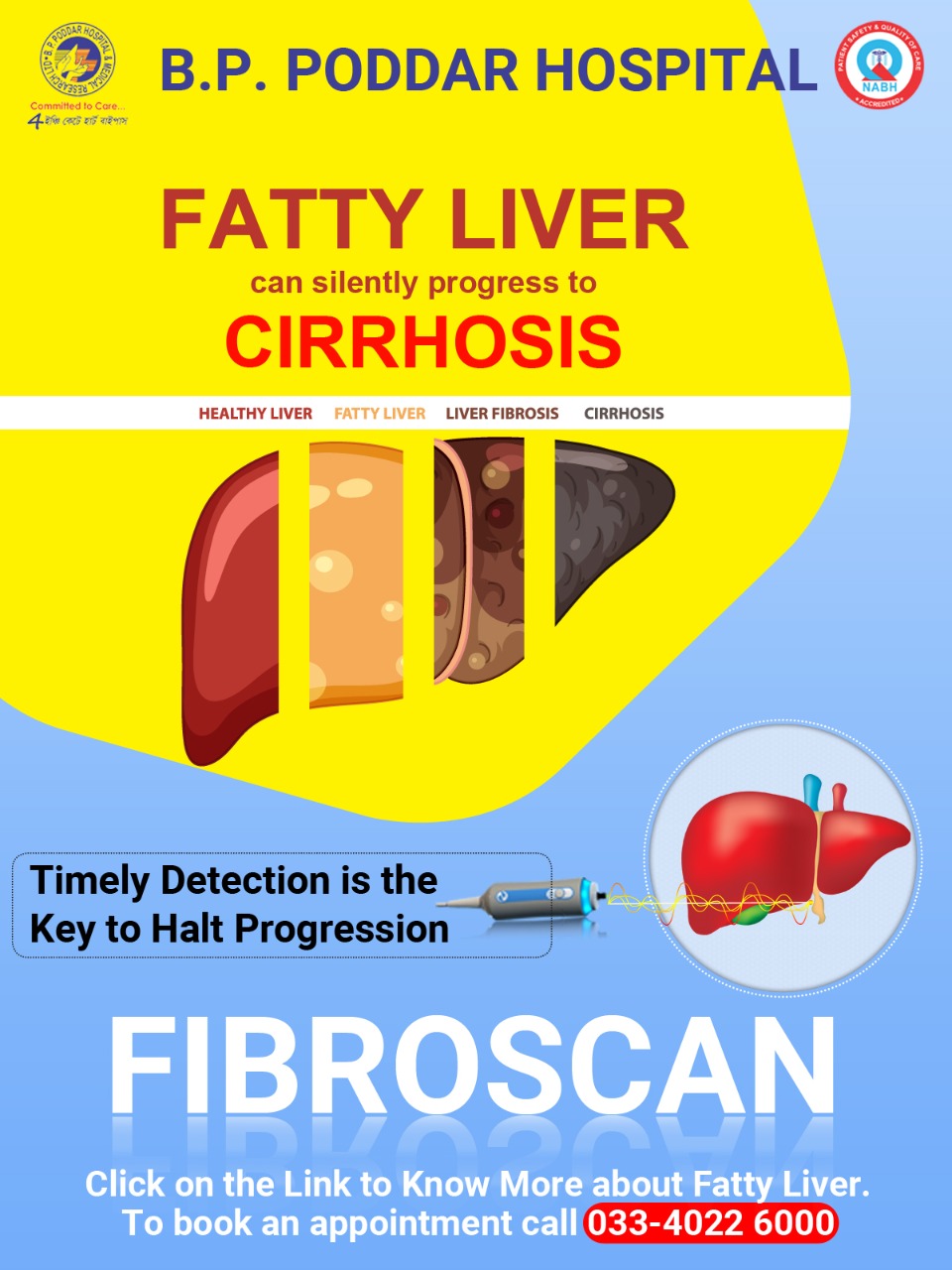
Fatty Liver- A Silent Killer
21 July, 2022
Liver is the second
largest organ in the body which produces bile and helps to process the
nutrients from food and drinks, further it filters the harmful substances from
the food. Liver also helps to resist the infections by removing toxins and
bacteria from the blood.
There is a modest amount of fat in a healthy liver. When fat equals 5% to 10% of your liver's weight, it becomes an issue. Steatosis, also known as fatty liver disease, is a common disorder brought about by an accumulation of too much fat in the liver.
Fatty Liver condition isn’t bad until and unless the condition becomes worse and reaches the stage when there is inflammation in the liver (steatohepatitis) along with the extensive damage of liver tissues (cirrhosis). The liver's function starts slowing down by the tough scar tissue that has replaced the healthy liver tissue and eventually the functioning of the liver completely stops. Severe cirrhosis can lead to Liver failure and Liver cancer.
Stages
of Fatty Liver-
- Normal Fatty Liver- excess fat
accumulation in the liver due to higher levels of cholesterol. This condition
is also known as Simple Fatty Liver.
- Steatohepatitis- this occurs when along
with the fat accumulation in the liver leads to inflammation. This condition is
a bit severe than the previous one.
- Fibrosis- Along with the inflammation,
slowly scarring and damage of the liver tissues occur. In this condition, the
liver still functions normally.
- Cirrhosis- This is the most severe and
irreversible condition where the scarring of liver tissues starts affecting the
liver functions.
What
are the causes? –
- Due to bad lifestyle such as extreme junk
food consumption rich in cholesterol at regular basis, skipping meals or eating
irregularly, severe consumption of alcohols and smoking etc.
- Overweight and obesity
- Due to physical and mental stress
- Self- medication like regular intake of
NSAIDs to relieve the chronic pain
- Bile reflux- It is a reflowing action when
the bile bypasses the small intestine and instead rushes back into the stomach.
What are the common symptoms observed?-
- Abdominal pain especially in the upper
right side of the abdomen.
- Nausea
- Edema- Swollen abdomen and legs.
- Bloating
- Loss of appetite.
- Jaundice- Yellowish skin and white portion
of the eyes.
- Unexplained weight loss
- Fatigue
What
are the Diagnostic tests and Treatments available?-
- Pathological
examinations such Blood tests and urine culture.
- Upper
Gastrointestinal tract endoscopy- An endoscope is a lengthy, thin tube with a
camera attached inserted from the mouth and passes through the food pipe and
gives the images till the upper part of the small intestine.
- Upper
abdomen ultrasonography or CT Scan to check the possibility of epigastric
hernia or suspicion of any abnormality in the digestive tract.
- Liver
biopsy- this is done by collection of the liver tissue samples to check the progression
of the disease.
- FibroScan-
this is a more advanced and specialized ultrasound which is done instead of
liver biopsy and tells the total amount of fat accumulation in the liver and
finds out the scarred liver tissues.
- Medications
as prescribed by the medical practitioner.
What is FibroScan?
Transient elastography,
another name for fibroscan, gauges the velocity of ultrasound waves as they
pass through the liver. The normal liver tissue and the areas of fibrosis are
both viewed by the ultrasound waves' varying velocity. FibroScan results are
available right away after the scan. It is a non- invasive test and used to
determine the degree of fibrosis in the liver. This is even done to assess the
health of the liver.
Prevention
and Control-
- Avoid consumption of oily, fried and spicy
foods.
- Consuming a number of little meals
throughout the day.
- Reduction of alcohol consumption and
caffeine.
- Management of stress.
- Avoid resting down for two to three hours
immediately after a meal.
